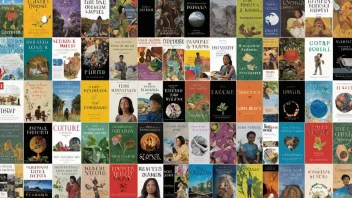In the ever-evolving world of literature, bestsellers hold a significant influence over the publishing industry. To delve deeper into this phenomenon, we sat down for a hypothetical interview with Dr. Emily Carter, a renowned literary scholar and expert in publishing trends. With over 15 years of experience in the industry and a Ph.D. in Literature and Media Studies, Dr. Carter has analyzed the impact of bestseller lists on authors, readers, and publishing houses. Here’s what she had to say about the dynamic relationship between bestsellers and the publishing industry.
The Role of Bestsellers
Interviewer: Dr. Carter, can you explain why bestsellers are so influential in the publishing industry?
Dr. Carter: Absolutely! Bestsellers serve as a benchmark for success in the publishing world. They create a visibility that can catapult an author to fame, leading to increased sales and wider distribution of their work. This visibility, however, isn't just beneficial for the author; it also influences what publishers choose to promote and invest in. A book that lands on a bestseller list can shape trends and dictate market demand.
The Selection Process
Interviewer: What factors contribute to a book becoming a bestseller?
Dr. Carter: There are several factors at play. First, marketing strategies are crucial. Publishers often invest heavily in marketing campaigns for potential bestsellers, including author tours, interviews, and social media promotions. Secondly, the timing of a book's release matters significantly. Books released during certain seasons, like summer or the holiday season, may have a better chance of hitting the lists due to increased consumer spending. Lastly, reader engagement and word-of-mouth recommendations play a critical role. A passionate reader base can help propel a book to bestseller status.
Impact on Authors
Interviewer: How does being a bestseller affect an author's career?
Dr. Carter: Becoming a bestseller can dramatically alter an author's career trajectory. It often leads to increased book deals, invitations to literary events, and greater media attention. However, it can also create pressure. Authors may feel compelled to replicate their success, which can stifle creativity. Additionally, those who don’t achieve bestseller status may find it challenging to secure future publishing opportunities, as publishers may favor authors who have proven sales potential.
Shaping Literary Trends
Interviewer: How do bestsellers shape literary trends?
Dr. Carter: Bestsellers are often reflective of current societal interests and anxieties. For instance, during times of crisis, readers may gravitate towards genres that offer escapism, such as fantasy or romance. Publishers take note of these trends and adjust their catalog accordingly. This can sometimes lead to a homogenization of literature, where similar themes or styles dominate the market, stifling diversity in storytelling. However, it can also lead to the discovery of new genres or unique voices that resonate with readers.
Criticism of the Bestseller Culture
Interviewer: There’s been criticism of the bestseller culture. What are the main points of contention?
Dr. Carter: Critics argue that the focus on bestsellers can overshadow diverse and important literature that doesn't receive mainstream attention. The system can be biased towards established authors or popular genres, making it difficult for debut authors or those in niche genres to break through. Furthermore, the emphasis on sales figures can lead to a prioritization of profit over artistic merit, which can dilute the quality of literature being published.
The Future of Bestsellers
Interviewer: What do you foresee for the future of bestsellers in the publishing industry?
Dr. Carter: The landscape is changing, especially with the rise of digital publishing and self-publishing platforms. These avenues allow more voices to be heard and have the potential to disrupt traditional bestseller criteria. I believe we’ll see a diversification of what constitutes a bestseller. Additionally, as readers become more conscious of the literature they consume—seeking out diverse stories and authors—we may witness a shift in the types of books that dominate the bestseller lists.
Conclusion
Through this engaging discussion with Dr. Emily Carter, we gained valuable insights into how bestsellers influence the publishing industry. From shaping marketing strategies and author careers to reflecting societal trends and facing criticism, bestsellers play a pivotal role in literature. As the industry evolves, it will be fascinating to observe how these dynamics shift and what new stories will emerge as a result. Ultimately, fostering a love of reading and supporting diverse voices will be key to ensuring that literature continues to thrive.






